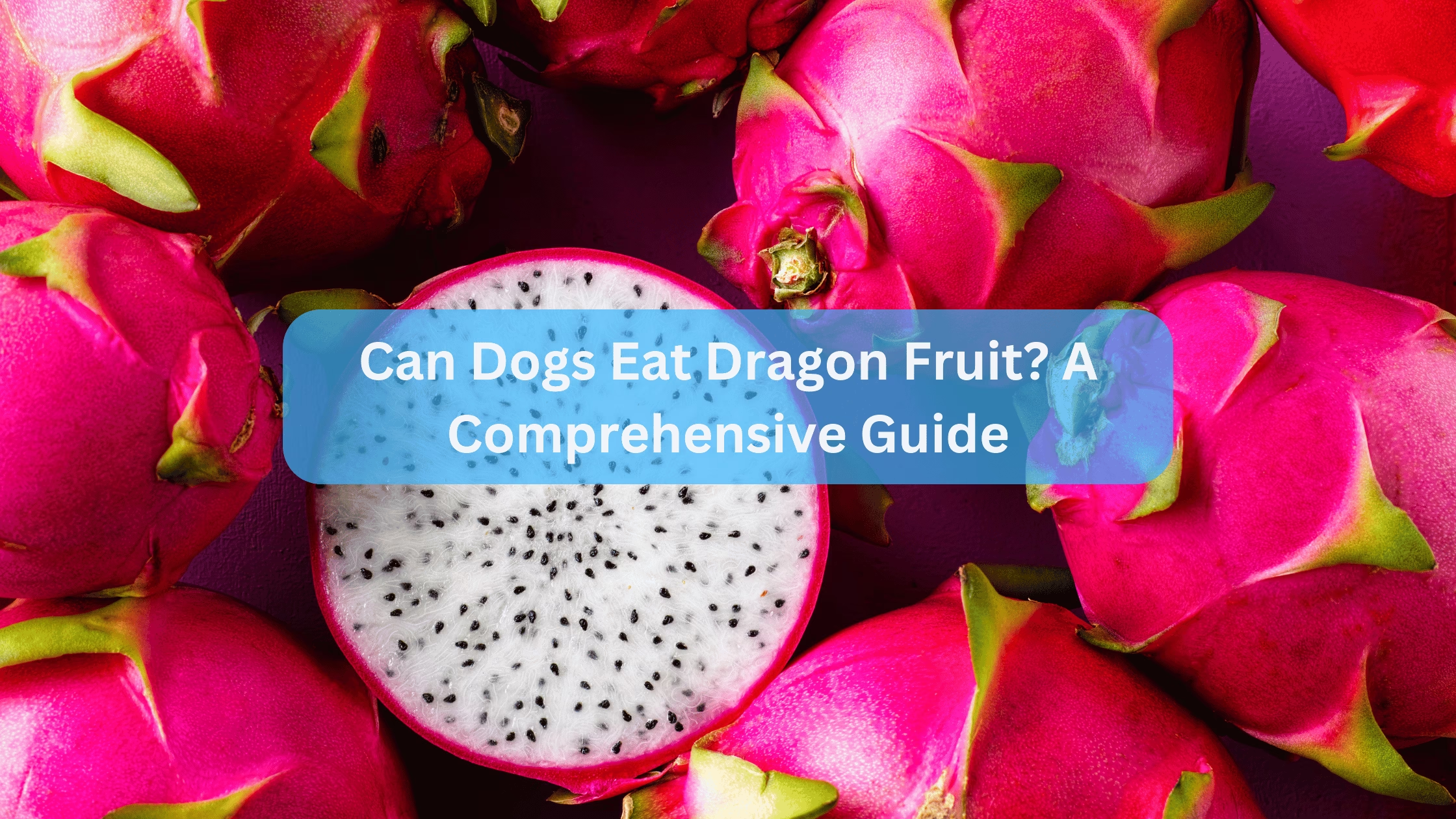Can Dogs Eat Dragon Fruit? As pet owners, we often find ourselves wondering about the safety and benefits of sharing our favorite foods with our furry companions.
One such question that arises is whether dogs can eat dragon fruit. This vibrant tropical fruit, also known as pitaya, is not only visually appealing but also packed with nutrients.
Here’s a detailed look at whether dragon fruit is safe for dogs and how it can benefit their health.
What is Dragon Fruit?
Dragon fruit is the fruit of several different cactus species indigenous to Central America, but it is now cultivated in many tropical and subtropical regions around the world.
It is characterized by its bright pink or yellow skin and sweet, seed-speckled flesh. There are several varieties, including:
- White-fleshed dragon fruit: The most common variety, with a mildly sweet flavor.
- Red-fleshed dragon fruit: Known for its vibrant color and slightly sweeter taste.
- Yellow dragon fruit: This variety has a sweeter flavor and is often considered the most nutritious.
Can Dogs Eat Dragon Fruit? Is Dragon Fruit Safe for Dogs?
Yes, dragon fruit is safe for dogs to consume. According to various sources, including the ASPCA, dragon fruit is non-toxic to dogs, making it a healthy treat option.
However, it’s important to prepare it correctly to ensure your dog’s safety.
- Remove the skin: The skin of the dragon fruit is tough and can pose a choking hazard. Always peel the fruit before offering it to your dog.
- Introduce gradually: When introducing any new food, including dragon fruit, start with small pieces to monitor your dog’s reaction.
- Watch for digestive issues: While dragon fruit is generally safe, some dogs may experience digestive upset if they eat too much. Symptoms to watch for include diarrhea or vomiting.
Health Benefits of Dragon Fruit for Dogs
Dragon fruit is not just safe; it also provides several health benefits for dogs:
- Rich in Vitamin C: This vitamin is crucial for supporting a healthy immune system and can help combat oxidative stress.
- High in Antioxidants: Antioxidants in dragon fruit can help reduce inflammation and lower the risk of chronic diseases.
- Fiber Content: The fiber in dragon fruit aids in digestion and can help maintain a healthy gut.
- Essential Fatty Acids: The seeds of dragon fruit contain omega-3 fatty acids, which are beneficial for skin and coat health.
- Low in Calories: Dragon fruit is low in calories, making it a guilt-free treat for dogs.
How to Serve Dragon Fruit to Your Dog
When serving dragon fruit to your dog, consider the following tips:
- Cut into small pieces: This makes it easier for your dog to chew and digest.
- Mix with regular food: You can incorporate small pieces of dragon fruit into your dog’s regular meals for added nutrition.
- Avoid processed forms: Stick to fresh dragon fruit, as canned or processed varieties may contain added sugars or preservatives that are unhealthy for dogs.
- Moderation is key: Treat dragon fruit as an occasional snack rather than a staple in your dog’s diet.
Also Read: Can Dogs Eat Mangosteen? A Comprehensive Guide
Also Read: Can Dogs Eat Escarole? A Comprehensive Guide
Conclusion: A Healthy Treat for Your Canine Companion
In summary, dragon fruit can be a nutritious and safe treat for dogs when offered in moderation.
Its rich nutrient profile not only makes it a delightful snack but also contributes positively to your dog’s overall health.
However, as with any dietary changes, it’s always best to consult with your veterinarian, especially if your dog has any pre-existing health conditions or dietary restrictions.
By introducing dragon fruit thoughtfully, you can enjoy sharing this exotic fruit with your furry friend while keeping them healthy and happy!
Sources:
- https://nordexotic.com/blog/can-dogs-eat-dragon-fruits-a-comprehensive-guide
- https://spotpet.com/blog/dog-tips/can-dogs-eat-dragon-fruit
- https://www.pawprintpetblog.com/2022/04/05/can-dogs-eat-dragon-fruit/
- https://www.masterclass.com/articles/can-dogs-eat-dragon-fruit
- https://www.akc.org/expert-advice/nutrition/fruits-vegetables-dogs-can-and-cant-eat/
- https://www.nomnomnow.com/learn/article/can-dogs-eat-dragon-fruit







